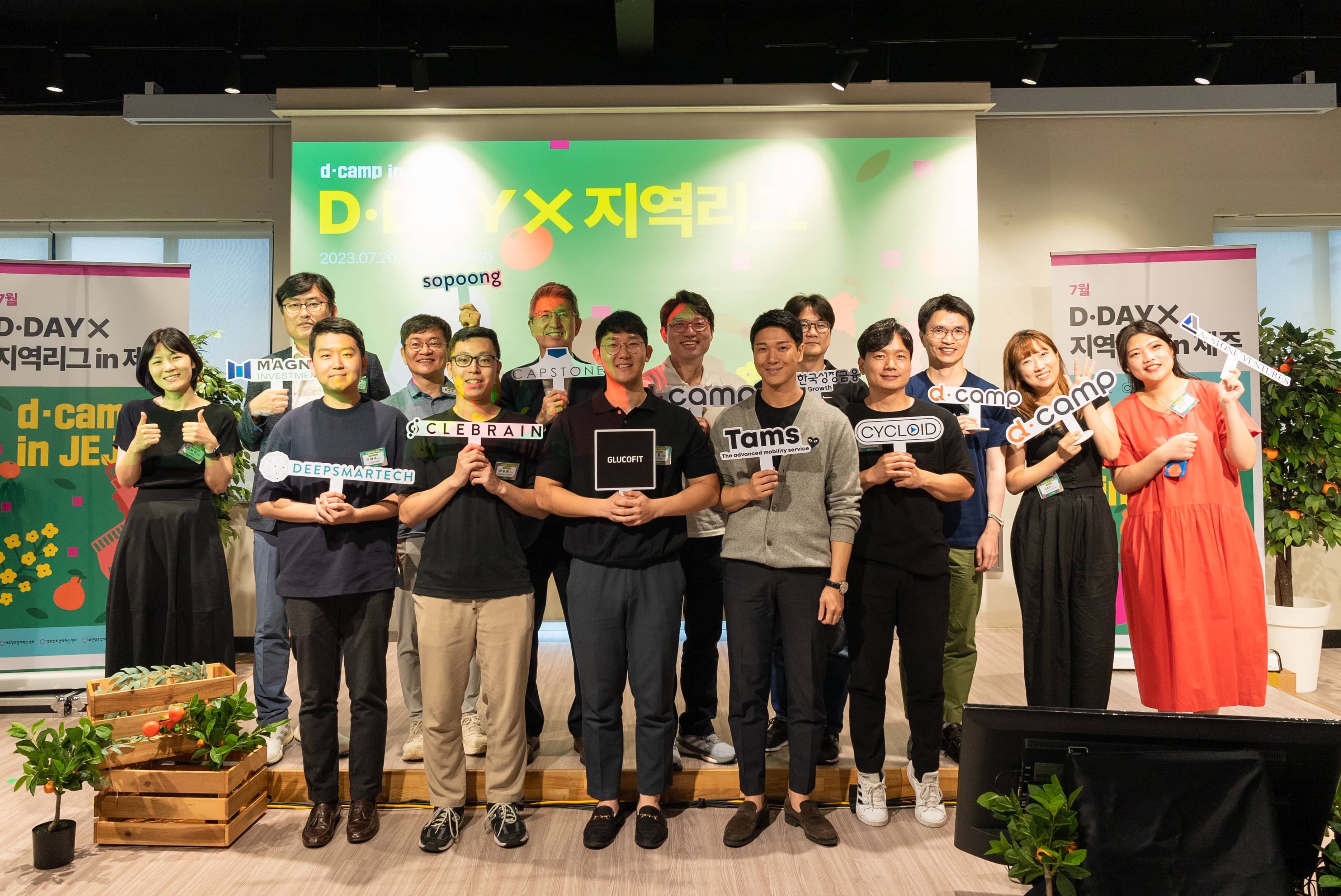
DEEPSMARTECH won the regional league of D.DAY organized by the Bank Foundation for Young Entrepreneurs, D.CAMP, which was held at W360 in Jeju Island on the 20th. In this D.DAY, five excellent startups based in the region and five early-stage startups expanding their services to the region advanced to the main round, with a total of 128 companies competing and a 25-to-1 competition ratio.
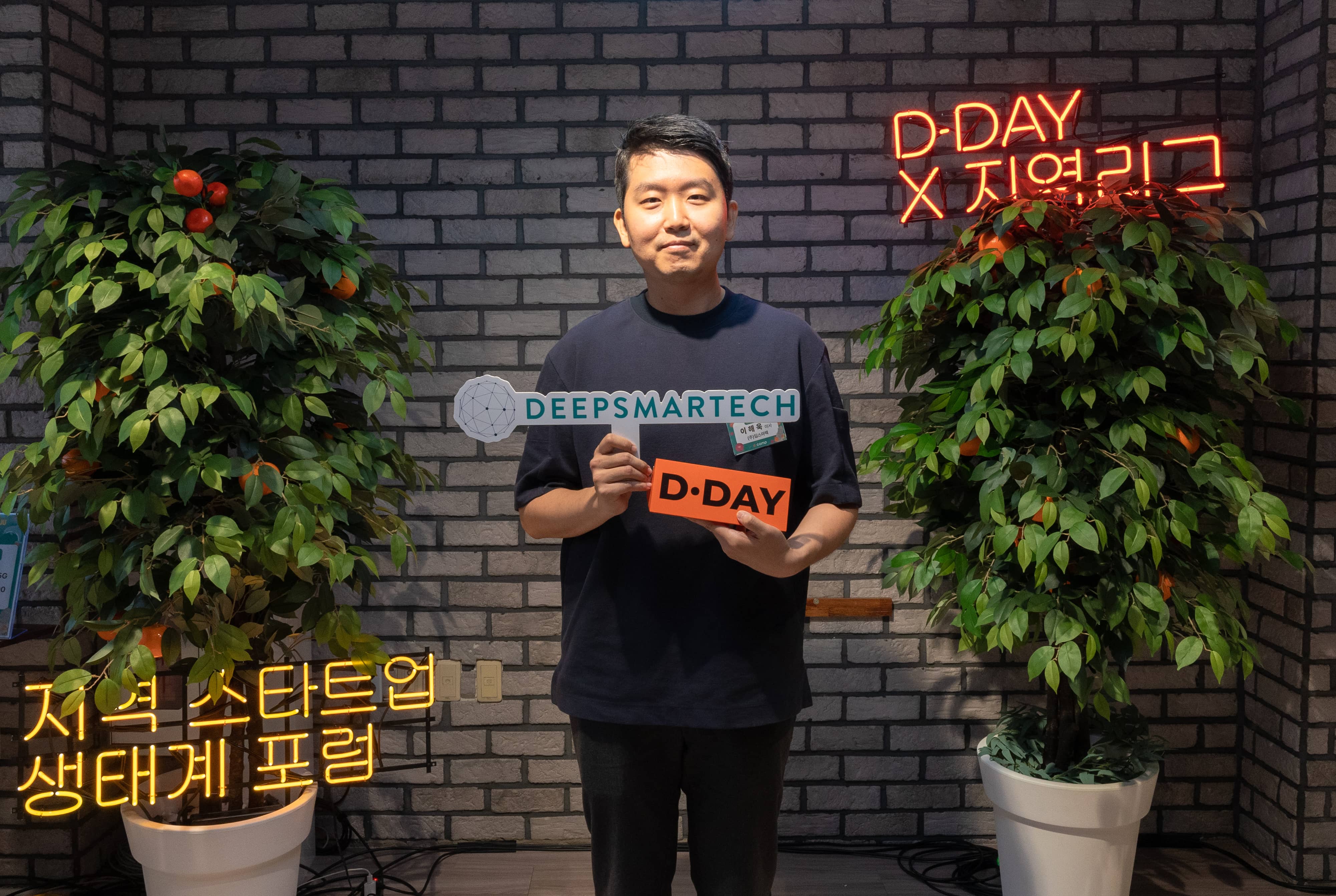
The winner, DEEPSMARTECH, is developing various functional polymer nanocoating technologies such as water-repellent, hydrophilic and antiviral with its proprietary polymer thin film deposition technology. Typical semiconductor processes use chemical vapor deposition (CVD) technology in a high-temperature environment to deposit more than 300 thin layers, but DEEPSMARTECH has developed a mass-production technology that can deposit uniform nano-level coatings even at room temperature.
Haewook Lee, director of DEEPSMARTECH, who made the presentation, claims that the technology can be applied to parts such as separators and silicones in electric vehicle batteries to improve fire safety and mileage. In the future, the company plans to enter the food packaging market (paper straws, food packaging materials) and the functional clothing market such as Gore-Tex with this coating technology.
In addition to DEEPSMARTECH, four other promising Jeju startups from Jeju took the stage at D.DAY.
LANSIK is a company that has developed GLUCOFIT, a blood glucose diet solution using Continuous Glucose Monitoring (CGM) technology. James Yang, CEO of LANSIK, developed the service to help people manage blood sugar spikes and lose body fat based on research showing that different people eat different foods that make them fat. By attaching a blood glucose sensor to the back of your arm, you can check your blood glucose response to the foods you eat in real time on the app and receive an optimized healthy diet based on that data. Yang said that members who used Glucofit for four weeks improved their blood sugar by an average of 8% and lost an average of 3 kg in weight.
TAMS develops SELBI, a financing quote service for auto dealers. In order for car dealers to provide finance quotes to their customers, they have to fill out different forms for each finance company and submit them indirectly through a finance agency. This process could take as little as 4 hours or as long as 48 hours, and the customer would have to pay a fee. To solve this problem, Tams developed an application that provides an all-in-one auto finance quote request. By charging only the finance company, Tams reduces the burden on both the customer and the car dealer, Choi said. Tams, which has signed outsourcing agreements with major finance companies including Hana Card, plans to officially launch its service in the third quarter of this year.
CYCLOID develops Badream, a trading platform for used motorcycles. Unlike cars, two-wheelers are vulnerable to fraud because there are no nationally recognized maintenance qualifications and no obligation to disclose performance inspection records for used vehicles. Badream allows buyers to objectively assess the condition of the vehicle through expertly reviewed performance inspection records. There is also a money-back guarantee for buyers. Junil Kwon, CEO of CYCLOID, said the company plans to expand into the new car and electric two-wheeler markets in the future, targeting sales of approximately $35 million (KRW 45 billion) in 2026.
Clebrain is developing PianoKiwis, a new music notation platform that enables amateur musicians to complete sheet music in five days or less. PianoKiwis currently supports a service that recognizes playing sounds in real time and delivers sheet music, and will provide ultra-personalized learning solutions based on accumulated performance data. Woong-Chan Park, CEO of Clebrain, started the project after discovering that the sheet music sales market is thriving, with global sheet music platforms generating more than $78 million (KRW 100 billion) in annual transactions, but that many consumers have difficulty playing music because sheet music is only distributed as PDF files, causing a large amount of performance data to be lost. Currently, the company has secured 30,000 subscribers and plans to add a learning solution feature in the future to reduce the transaction fee for sheet music to 0%.
The event was sponsored by Korea Growth Investment Corporation (K-Growth)and attended by Shin-Young Ahn, CEO of A-Ston Ventures, Eunkang Song, CEO of Capstone Partners, and judged by Seok-Bae Lee, Vice President of MAGNA Investment, Jeonghwan Jeon, Director of KRYPTON, Haesung Roh, Head of K-Growth, and Jong-Ho Han, Venture Partner at Sopoong Ventures.
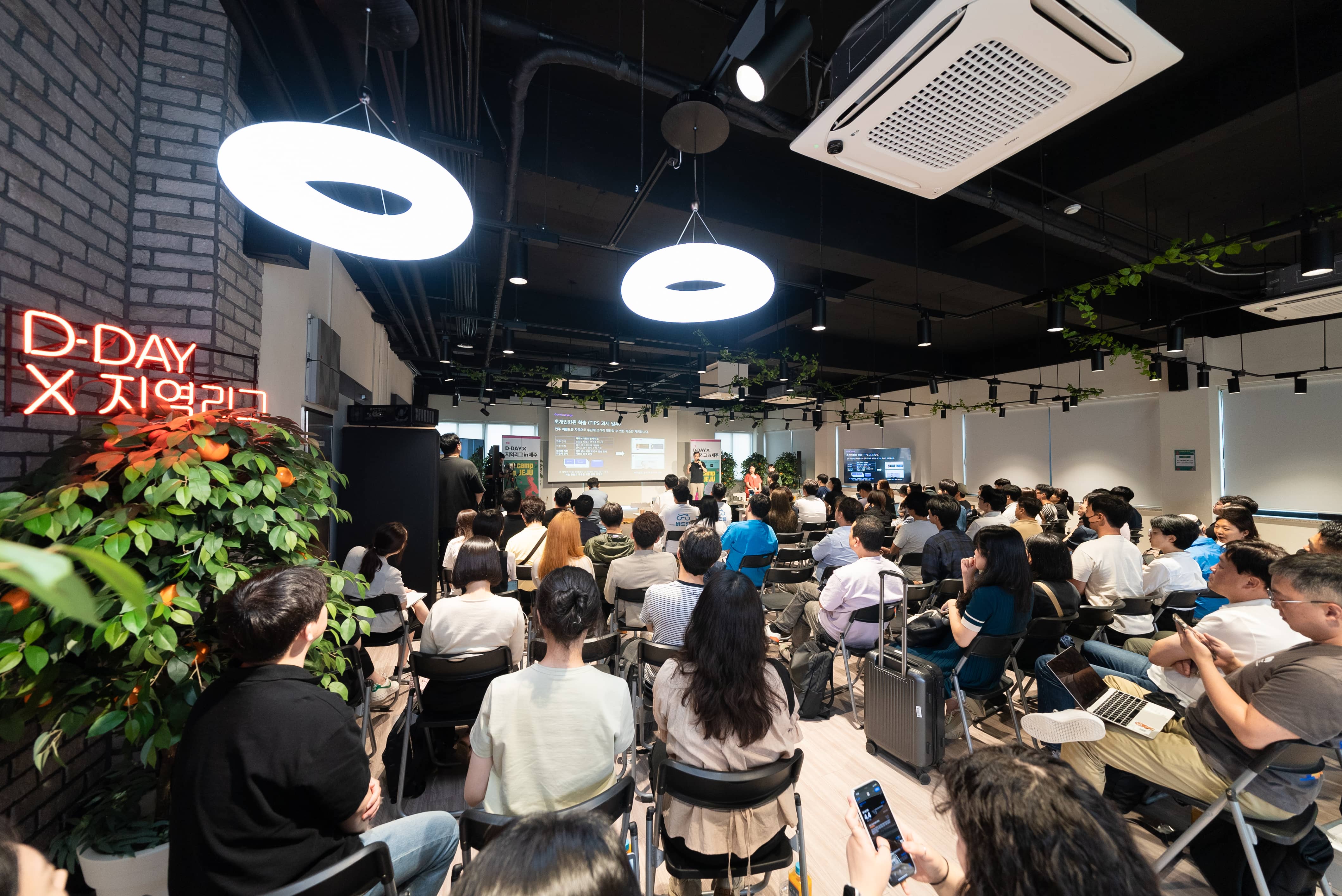
On the eve of D.DAY, D.Camp hosted a panel discussion on local startup ecosystems with industry experts. In the panel discussion, the panel presented different approaches to revitalize the local startup ecosystem. Professor Woo-Jin Lee from Kookmin University, Doin Choi, Executive Director of METTA Planning Consulting, and Youngduck Kim, CEO of D.Camp presented the topic. In the panel talk, the panel discussion was moderated by Jeonghwan Jeon, Director of KRYPTON, with Jong-Ho Han, Venture Partner of Sopoong Ventures, Ji-Won Kim, CEO of ReDWit, and Eunji Woo, PhD of KAIST Designize Lab.
D.Camp has committed a total of $8 million (KRW 10.2 billion) to revitalize the local startup ecosystem with the participation of seven local funds. Through the Remote Work Program, D.Camp divides the areas into five regions, Gyeongsang-do, Jeolla-do, Chungcheong-do, Gangwon-do and Jeju-do, and visits local startups in four cities every month for various exchange events. The Remote Work Program is a program that brings startup ecosystem stakeholders (support agencies, VCs/ACs, experts, and senior and fellow founders) together in the same room for a day of work and networking.
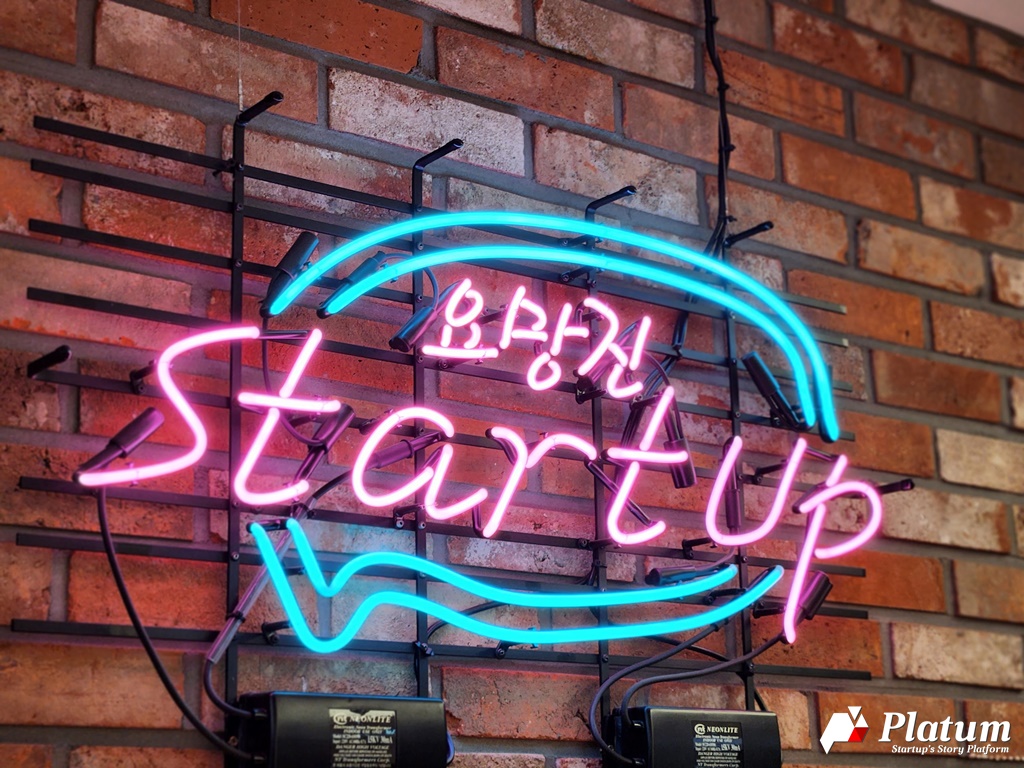

![[BLT칼럼] 아이온큐가 특허로 '기술 신뢰도'를 쌓은 법 : 양자컴퓨팅 시대, IP 전략 제시 8ee48ae3a3a11](https://platum.kr/wp-content/uploads/2025/10/8ee48ae3a3a11-150x150.png)

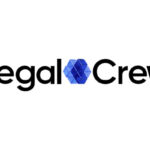


Leave a Comment